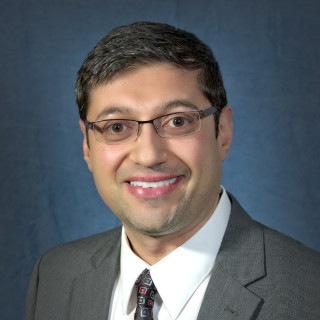It was once again great to attend the American College of Cardiology Scientific Sessions 2023 together with the World Congress of Cardiology in person in New Orleans. Similar to last year, and even greater this year, more and more colleagues felt confident and willing to attend in person as we have emerged from the COVID-19 pandemic. This willingness allowed for the excellent benefits of collegial interaction, networking, and overall camaraderie and humanism in the cardiology field. It is a true pleasure to see national and international friends and colleagues in person and to be able to catch up and interact in beautiful New Orleans. It is also excellent to share our institution’s scientific findings on the international stage of cardiology at the ACC 23/WCC.
This year, I feel one of the main topics integral and central to the conference's underlying theme was global cardiovascular health. This theme pertains to advancing global health, and international collaboration was evident during the meeting. From the very beginning in the opening session that took place early Saturday morning, where presentations given by the leaders of the World Heart Federation and the American College of Cardiology occurred, to numerous sessions like the panel discussion on the Heart2Heart stage by American and global cardiology leaders, the theme of global cardiology ran throughout the meeting. Additionally, I enjoyed so many more of our international colleagues from wide-ranging countries gathered in beautiful New Orleans. While the official estimates are probably still being tallied, after speaking to multiple colleagues and judging by the amount of traffic throughout the convention center, there must have been between 10,000-15,000 attendees at the meeting, and this figure probably does not account for all of the associated industry personnel that were present.
The importance of global collaboration is essential due to the continued rise in the worldwide burden of cardiovascular disease. This focus was made evident by a dedicated lineup of “global health is spoken here” sessions, focusing on various topics such as improving global cardiovascular disease, prevention, cardio-obstetrics, cardiovascular imaging in low- and middle-income countries, and other sessions. The panels emphasized the acceleration in the transformation of cardiovascular care worldwide and to be carried forward by building a pipeline of global leaders and partnerships with international cardiology societies.
The collaboration in the field of cardiology on a global scale has been ongoing for several years and led to excellent publications, such as the December 2022 JACC issue, which highlighted the global burden of cardiovascular disease and the assessment of cardiovascular disease mortality, using evaluations performed in over 200 international countries and territories and focusing on cardiovascular conditions with an emphasis on environmental, metabolic, and behavioral risk factors. Only by promulgating education and viewing knowledge of differences and similarities in the incidence and prevalence of cardiovascular disease on a global level can we affect change and decrease morbidity and mortality related to cardiovascular disease, and this was one of the main points I took away from this year‘s meeting.
The second theme that captured my attention was the presence of studies evaluating “Implementation Science” on center stage more than I have seen in any year prior. While implementation science, which is the study of strategies that facilitate the acceptance and use of evidence-based practice and research, has been evaluated at prior cardiology conferences, including previous ACC meetings, for the first time, in my opinion, it was given great importance on the center stage in the main tent and valued for its outcomes, and not just presented in smaller, sparsely attended sessions. The Late Breaking Clinical Trials Session III on Sunday, March 5th, featured many of these implementation science studies, including the BETTER CARE-HF trial, the NUDGE-FLU Trial, and the PCDS Statin trial, among others, which all showed improved adherence and implementation of evidenced based interventions and therapies with electronic and artificial intelligence mediated reminders. While some may not find this focus very interesting, it is central to all we do in cardiology and, without the adherence to guideline-directed evidence-based evaluation and therapy, all of our advancements and improvements to the care of our cardiology patient, will not be realized. All in all, I congratulate the ACC 2023/WCC planning committee and leadership of the ACC and the World Heart Federation for their execution of, in my opinion, an excellent conference highlighting two critical themes.
Dr. Makaryus has no conflicts of interest to report.
Image by Tasha Art / Shutterstock







